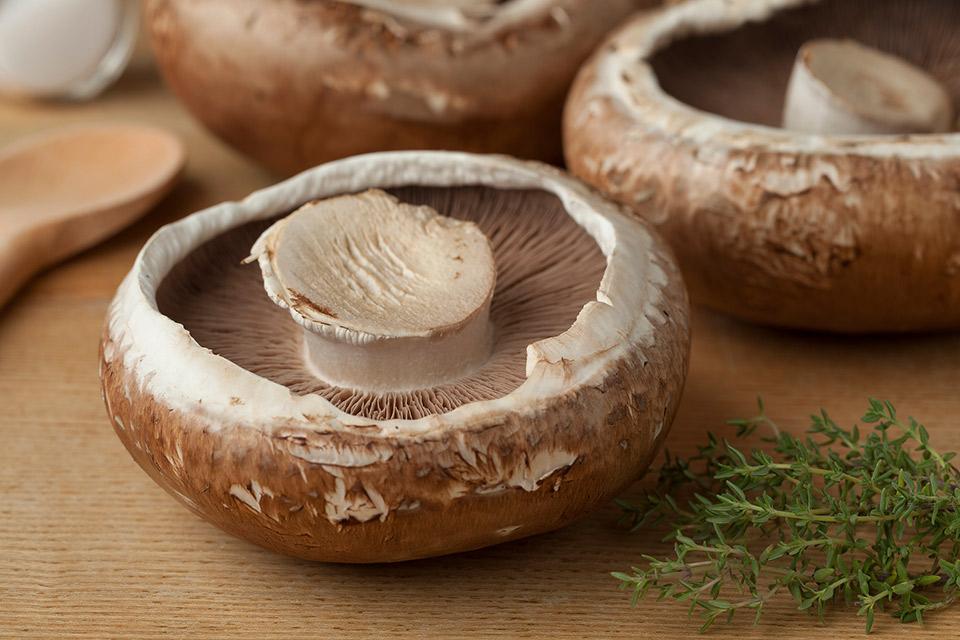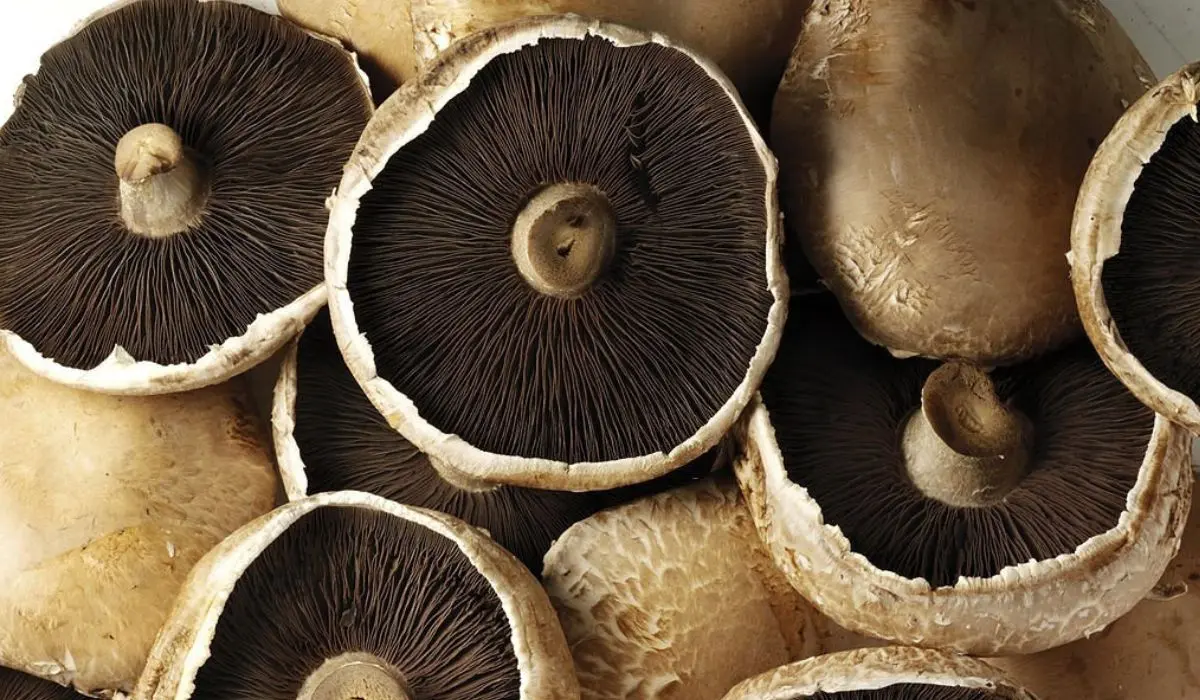Portabella mushrooms, while delicious, can have some drawbacks. Consuming them may lead to digestive issues for some individuals, causing bloating or gas. Additionally, their high purine content can pose a concern for those with gout or kidney issues. It’s necessary to be aware of these potential negative effects, especially if you have specific health conditions.
This mushroom variety can also be a source of allergens, triggering allergic reactions in susceptible individuals. While Portabellas are a popular choice in many dishes, understanding and considering these potential drawbacks can help individuals make informed decisions about including them in their diet.
How do Portabella mushrooms contribute to bloating and gas?

Portabella mushrooms, while flavorful and versatile, may pose digestive drawbacks for some individuals.
How Portabellas May Cause Bloating Or Gas
Portabella mushrooms, like many other foods, contain a type of carbohydrate known as raffinose. This complex sugar is classified as an oligosaccharide and is not easily digested by the human digestive enzymes in the small intestine.
As a result, it reaches the large intestine largely intact. In the colon, resident bacteria take on the task of breaking down this undigested raffinose through a process of fermentation.
During fermentation, gases such as carbon dioxide, methane, and hydrogen are produced. This gas production can lead to bloating and gas in the digestive system.
The accumulation of these gases creates pressure in the intestines, potentially causing discomfort and bloating, especially in individuals who may be sensitive to these effects.
Individual Variations In Digestive Tolerance
The digestive tolerance to Portabella mushrooms varies significantly among individuals and is influenced by several factors.
Gut Microbiota Composition
The human gut is home to trillions of microorganisms, collectively known as the gut microbiota. The composition of this microbiota varies from person to person. Individuals with a diverse and resilient microbiota may be better equipped to handle the fermentation of raffinose, experiencing fewer digestive issues.
Overall Digestive Health
The general health of the digestive system plays a vital role. Individuals with a healthy gastrointestinal tract may process and absorb nutrients more efficiently, reducing the likelihood of digestive discomfort.
Personal Sensitivity
Some people are inherently more sensitive to certain compounds found in foods. In the case of Portabella mushrooms, those with heightened sensitivity to the gases produced during fermentation may experience more pronounced bloating or gas.
Pre-existing Digestive Conditions
Individuals with conditions such as irritable bowel syndrome (IBS) or inflammatory bowel disease (IBD) may be more susceptible to digestive issues. These conditions can affect how the digestive system responds to certain foods, including Portabella mushrooms.
How Do Portabella Mushrooms Impact Health With Their Purine Content?
Portabella mushrooms, celebrated for their rich flavor, carry a noteworthy purine content that can influence health.
High Purine Levels In Portabella Mushrooms
Portabella mushrooms, like many other mushrooms, contain purines. Purines are natural compounds found in various foods and are broken down in the body to form uric acid.
While purines are a normal part of the diet, some individuals may be more sensitive to high levels of purines.
Portabella mushrooms, particularly when consumed in large quantities, contribute to the overall purine load. The body’s ability to metabolize purines can vary, and for some people, an excessive intake of purine-rich foods may lead to elevated levels of uric acid in the blood. This can be a concern, especially for individuals with conditions like gout or kidney issues.
Impact on individuals with gout or kidney issues
- Gout: Gout is a type of arthritis caused by the accumulation of uric acid crystals in the joints. Foods high in purines, like Portabella mushrooms, can contribute to increased uric acid levels, potentially triggering gout attacks in susceptible individuals. For those with gout, moderation in consuming high-purine foods is often recommended.
- Kidney Issues: Individuals with kidney problems, including those with kidney stones or impaired kidney function, may also need to be mindful of their purine intake. High levels of purines can contribute to the formation of uric acid crystals in the kidneys, leading to complications. Kidney patients often receive dietary advice to manage purine intake, and Portabella mushrooms may be considered in the context of an overall low-purine diet.
Are there allergens in Portabella mushrooms, and what reactions might occur?
While Portabella mushrooms are a popular culinary choice, it’s important to explore how they might trigger allergies
Portabella Mushrooms As Potential Allergens
Portabella mushrooms, often celebrated for their culinary versatility, carry proteins that can serve as potential allergens.
While allergic reactions to mushrooms, including Portabellas, are relatively rare, it’s essential to recognize their potential as triggers.
The specific proteins responsible for these allergies are not fully elucidated, contributing to the challenge of predicting who may be susceptible.
Some individuals might experience cross-reactivity to mushroom allergens, particularly if they already have allergies to other fungi.
Identifying Portabellas as potential allergens underscores the importance of cautious consumption, especially for those with a history of allergies or sensitivities.
Any unusual symptoms following the consumption of Portabella mushrooms, such as itching, swelling, breathing difficulties, or gastrointestinal discomfort, should prompt immediate medical attention.
Instances Of Allergic Reactions In Susceptible Individuals

Allergic reactions to Portabella mushrooms can manifest across a spectrum of symptoms, ranging from mild to severe.
Common symptoms include skin reactions like hives, eczema, digestive disturbances such as nausea or abdominal pain, and respiratory symptoms like sneezing or nasal congestion.
In rare cases, severe reactions like anaphylaxis can occur, necessitating emergency medical intervention.
Individuals with a documented history of mushroom allergies, especially to other varieties, should exercise heightened caution when introducing Portabellas into their diet.
Cross-reactivity, where the immune system reacts to similar proteins in different substances, may elevate the risk of allergic responses.
FAQ
Do all mushrooms contain hydrazine?
No, not all mushrooms contain hydrazine. While it’s present in some, like portobello mushrooms, its levels can vary among different mushroom varieties.
Are baby portabella mushrooms healthy?
Yes, baby portabella mushrooms are a healthy choice. They offer nutrients like vitamins, minerals, and antioxidants, similar to their mature counterparts.
What’s the big deal about portobello mushrooms?
The appeal of portobello mushrooms lies in their robust flavor, meaty texture, and versatility in various dishes, making them a popular and flavorful ingredient.
What is so special about portobello mushrooms?
Portobello mushrooms stand out for their large size, earthy taste, and dense texture, making them a satisfying meat substitute in vegetarian dishes and a versatile ingredient in various cuisines.
Is it OK to eat portobello mushrooms every day?
While portobello mushrooms are nutritious, moderation is key. Eating them every day may expose you to high levels of certain compounds, so it’s advisable to maintain a varied diet.
Why can’t you eat the gills of a portobello mushroom?
The gills of portobello mushrooms are edible but may contribute to a darker color and a potential gritty texture. Removing them can enhance the overall culinary experience.
What is the history of portabella mushrooms?
Portobello mushrooms have Italian origins, and their popularity grew in the United States in the 1980s. Initially, they were marketed as mature cremini mushrooms, and their unique characteristics gained attention over time.
Final words
In conclusion, while Portabella mushrooms add a tasty touch to meals, it’s essential to be aware of potential drawbacks. Digestive issues and allergens can affect some individuals. Moderation and paying attention to your body’s signals will help you enjoy these mushrooms without any unwanted effects. If you have specific health concerns, consulting with a healthcare professional is always a wise choice. Make informed choices, savor the flavors, and keep your well-being in mind!”











